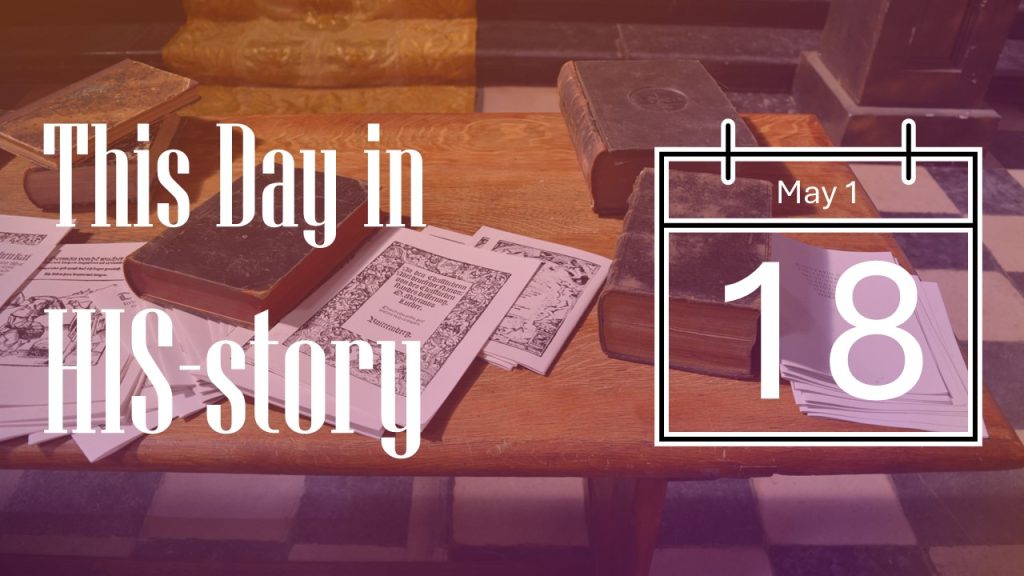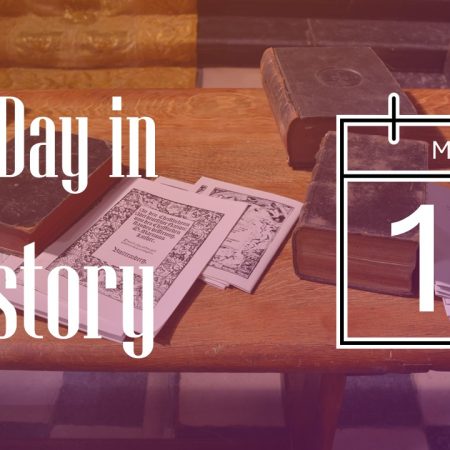
1808
Personal tragedy sometimes forces us to take a closer look at our lives. At least that’s how it was for Jacob Albright.

RIDING ALONG a Pennsylvania turnpike, Jacob Albright encountered a group of road workers. They recognized him as a traveling evangelist, called him filthy names, and hurled stones at him. Rather than spur his horse to safety, he dismounted, knelt, and prayed for his tormenters, shaming them into silence. The mission of an evangelist was fraught with danger. For instance, one dark night, while he and fellow evangelists were holding a service, a band of thugs swarmed their meeting. The evangelists extinguished the lamps and escaped in the darkness.
Years earlier, Albright had expected salvation by following Lutheran church rituals. However, when several of his children died of dysentery in 1790, Albright asked Anthony Houtz to preach their funeral. Houtz’s powerful sermon caused Albright to realize he needed a personal connection with Christ.
He began to read the Bible. Months later he found spiritual peace thanks to the counsel of some neighbors. Although he knew little English, Albright attended Methodist services, because they seemed more alive than German meetings. He started praying that others would also find hope in Christ. One day, he heard a voice within him say,
Was it only a coincidence that your heart was overburdened with sympathy for your brethren? Is not this the visible hand of Him who guides not only the destinies of nations but also that of the individual? How if His unending love … has chosen you to lead your brethren into the path of knowledge and prepare them to be partakers of God’s mercy?
Albright recognized God’s summons but delayed acting on it. He had a farm to tend. Soon he became ill and was in great pain. He realized his sickness came from resisting God. He promised obedience if healed and immediately improved. In 1787, he preached his first sermon. Instigated by a local pastor, thugs attacked the outdoor gathering. They injured several listeners but Albright escaped unharmed. He traveled the region, preaching and calling people to repentance. More than once, his sermons brought such conviction that listeners fell to the ground sobbing or fled in terror. Albright formed the converts into small groups patterned on Methodist classes.
In fact, Albright had actually asked the Methodists to assimilate his converts and provide them with German leaders. The Methodists refused. Their leader, Francis Asbury, thought the German language would soon die out. Asbury’s decision forced Albright to create a new organization, the “Dutch Methodists” or “Albrighters.” Later they named themselves the “Evangelical Association.”
Some Lutheran and Reformed pastors labeled Albright a heretic. He crushed them in debates, showing that his teachings were biblical and in agreement with the great doctrines of their own confessions. However, pastors of those churches incited rowdies to attack the “heretic.” One mob mauled Albright, laying him up for two weeks.
Evangelists such as Albright traveled in both summer rain and winter cold. Often, they got wet fording streams or breaking through ice. If their horses died, they walked. Penniless, they knew hunger. When they preached, it might be in a crowded room with disease-carrying listeners. Not surprisingly, under such conditions, many traveling preachers died in middle age.
Albright was no exception. He developed “consumption” (probably tuberculosis). At the annual conference in 1808, he was too weak to preach. Afterward he tried to ride home by easy stages, staying with converts along the way. When he reached Muehlbach he could go no farther. He made it to the home of George and Samuel Becker, who kept a room for traveling preachers, telling them, “Have you made my bed ready? I have come here to die.”
All who visited the sick man found he never complained about his sufferings. Instead he glorified Jesus Christ. Asked near the end how he felt, he replied, “Happy and heavenly. I shall soon be in heaven.” Those were his last words. Albright died on this day, 18 May 1808, not quite fifty years old.
